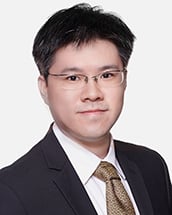In brief
The Ministry of Home Affairs (MHA) introduced the Protection from Scams Bill for First Reading in Parliament on 11 November 2024. The Bill empowers the Police to issue Restriction Orders (ROs) to banks to restrict an individual’s banking transactions, if there is reasonable belief that the individual will make money transfers to scammers.
In more detail
Background
The Government has introduced the Bill in response to the rising scam cases in recent years. The MHA reported that from 2019 to 2023, the number of scam cases increased almost five times, from about 9,500 to about 46,600 cases. In 2023 itself, approximately SGD 650 million was lost to scams. Despite working with banks to put in place a suite of safeguards to protect the public (including the Kill-Switch, which allows customers to freeze their bank accounts if they suspect that their accounts are compromised, and Money Lock, where customers can set aside a sum of monies that cannot be transferred out of their bank accounts via online means), the number of scam cases remains high. In the first half of 2024, 86% of reported scams were the result of self-effected transfers. The scammers did not gain direct control of the victims’ accounts, but manipulated the victims into transferring their monies to the scammers.
Restriction Orders
The proposed Bill seeks to protect targets of ongoing scams by empowering the Police to issue Restriction Orders (RO) to banks to restrict the banking transactions of the individual, if there is reasonable belief that the individual will make money transfers to a scammer. The intent is to protect the individual from losing money to scammers.
In summary, the decision to issue a RO will be made by a police officer, based on an assessment of the facts and circumstances of each case (including relevant facts provided by the individual or the individual’s family members).
A police officer may issue an RO to a bank if the officer has reasonable belief that:
- The individual will execute a money transfer to a scammer; and
- The RO is necessary for the protection of the individual. The RO will be issued only as a last resort, after other options to convince the individual have been exhausted.
Upon the issuance of an RO, the following banking facilities will be restricted:
- Money transfers out of the bank accounts and into other accounts (including via online banking, mobile banking, PayNow, and in person over the counter);
- ATM facilities; and
- All credit facilities (e.g., credit card transactions, access to personal loan facilities).
Individuals may apply for access to their monies for legitimate reasons (e.g., sustain daily living, pay bills). Such cases will be assessed on a case-by-case basis by the police.
An RO will be in effect for a maximum of 30 days at a time. If more time is needed to put in place necessary intervention measures, the police can extend the RO for up to 30 days at a time, up to a maximum of five extensions.
The MHA has indicated that the police will only issue ROs for scam cases conducted remotely, where the scammer engages in the use of remote communication to interact with the scam victim for the purposes of the scam. This is intended to exclude traditional cheating cases involving in-person interactions, such as transfers to an errant renovation contractor or to a family member or friend.
Further information is available on the Ministry of Home Affairs’ website.
Key takeaways
The Protection from Scams Bill provides an additional tool to be used in combating scams in Singapore. By empowering the police to restrict the banking transactions of potential scam victims, the Bill enhances the safety of members of the public who may be targeted by scams.
We see this effort by the MHA as part of a broader push by the government towards a shared responsibility across various members of the public in Singapore. This is in line with the fact that the Shared Responsibility Framework (SRF) that will be implemented from 16 December 2024 (see our client alert here), both financial institutions and telecommunication companies will have relevant duties to mitigate phishing scams and protect users against scams.
* * * * *
For further information and to discuss what this development might mean for you, please get in touch with your usual Baker McKenzie contact.
* * * * *

© 2024 Baker & McKenzie. Wong & Leow. All rights reserved. Baker & McKenzie. Wong & Leow is incorporated with limited liability and is a member firm of Baker & McKenzie International, a global law firm with member law firms around the world. In accordance with the common terminology used in professional service organizations, reference to a “principal” means a person who is a partner, or equivalent, in such a law firm. Similarly, reference to an “office” means an office of any such law firm. This may qualify as “Attorney Advertising” requiring notice in some jurisdictions. Prior results do not guarantee a similar outcome.








